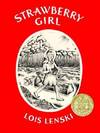New York: The Macmillan Company, 1970. First American Edition. Fifth Printing [stated]. Hardcover. Very good/Good. xiv, 633, [1] pages. Illustrations. Footnotes. Notes. Bibliographical Notes and Select Bibliography. Index. Embossed stamp on title page. DJ has some wear, soiling, and edge tears. Sticker residue at top of DJ spine. George Robert Acworth Conquest (15 July 1917 - 3 August 2015) was an English-American historian and poet. Conquest was noted for his works on Soviet history including The Great Terror: Stalin's Purges of the 1930s (1968). In 1948 Conquest joined the Foreign Office's Information Research Department (IRD), a "propaganda counter-offensive" unit. In 1956, Conquest left the IRD, becoming a writer and historian. In 1968, Conquest published his best-known work, The Great Terror: Stalin's Purge of the Thirties, the first comprehensive research of the Great Purge, which took place in the Soviet Union between 1934 and 1939. Many reviewers at the time were not impressed by his way of writing about the Great Terror, which was in the tradition of "great men who make history". The book was based mainly on information which had been made public, either officially or by individuals, during the so-called "Khrushchev Thaw" in the period 1956-64. It also drew on accounts by Russian and Ukrainian émigrés and exiles dating back to the 1930s, and on an analysis of official Soviet documents such as the Soviet census. The most important aspect was that it widened the understanding of the purges beyond the previous focus on the "Moscow trials" of disgraced Communist Party leaders such as Nikolai Bukharin and Grigory Zinoviev. The Great Terror: Stalin's Purge of the Thirties is a book by British historian Robert Conquest, published in 1968. It gave rise to an alternate title of the period in Soviet history known as the Great Purge. Conquest's title was also an evocative allusion to the period that was called the Reign of Terror during the French Revolution. One of the first books by a Western writer to discuss the Great Purge in the Soviet Union, it was based mainly on information which had been made public, either officially or by individuals, during the Khrushchev Thaw in the period 1956-1964. The first critical inquiry into the Great Purge outside USSR had been made as early as 1937, by the Dewey Commission, which published its findings in the form of a 422-page book entitled Not Guilty (this title referred to the people who had been charged with various crimes by Stalin's government and therefore purged; the Dewey Commission found them not guilty). According to the book, the trials and executions of these former Communist leaders were a minor detail of the purges, which, together with man-made famines, had led to 20 million deaths according to his estimates. In the appendix of the original 1968 edition of The Great Terror, Conquest estimated 700,000 "legal" executions took place during 1937 and 1938, which was roughly confirmed by the 681,692 executions found in the Soviet archives for these two years. In the book, Conquest disputed the assertion made by Nikita Khrushchev, and supported by many Western leftists, that Stalin and his purges were an aberration from the ideals of the Revolution and were contrary to the principles of Leninism. Conquest argued that Stalinism was a natural consequence of the system established by Lenin, although he conceded that the personal character traits of Stalin had brought about the particular horrors of the late 1930s. In the book Conquest sharply criticized Western intellectuals for their blindness towards the realities of the Soviet Union, both in the 1930s and, in some cases, even in the 1960s. He described figures, such as Beatrice and Sidney Webb, George Bernard Shaw, Walter Duranty, Sir Bernard Pares, Harold Laski, and Theodore Dreiser as dupes of Stalin and apologists for his regime for denying, excusing, or justifying various aspects of the purges. After the collapse of the Soviet Union and the opening up of the Soviet archives, many of Conquest's claims were validated as having been accurate. Many historians agree with Conquest and maintain their original, higher estimates, among them Stalin biographer Simon Sebag Montefiore, Perestroika architect Alexander Nikolaevich Yakovlev, and Jonathan Brent, putting the death toll at about 20 million. Russian historian Dmitri Volkogonov (who was special adviser for defence issues to the Russian President Boris Yeltsin until 1994), is also broadly in agreement with Conquest. In the preface to the 40th anniversary edition of The Great Terror (2007), Conquest said that "Exact numbers may never be known with complete certainty, but the total of deaths caused by the whole range of Soviet regime's terrors can hardly be lower than some fifteen million."


(US)

